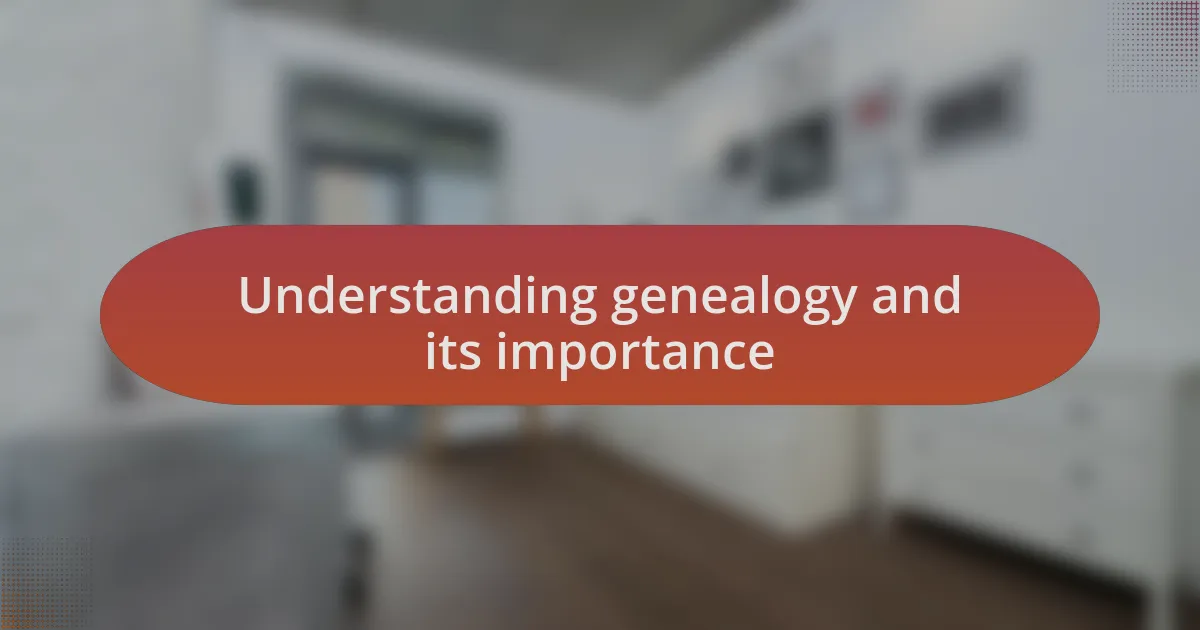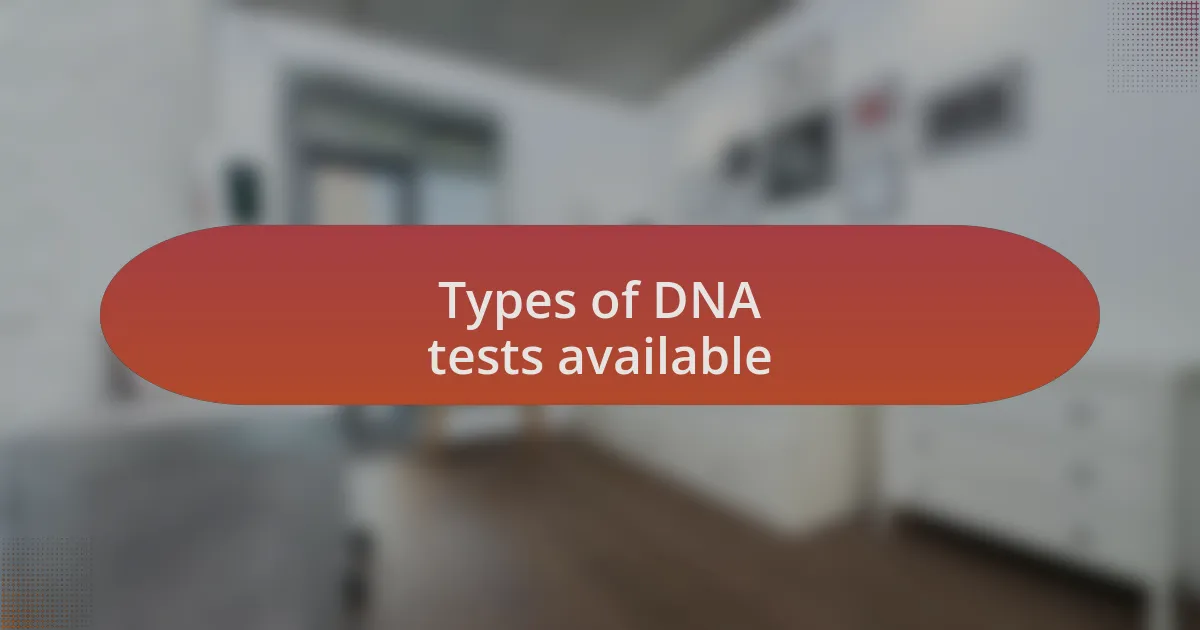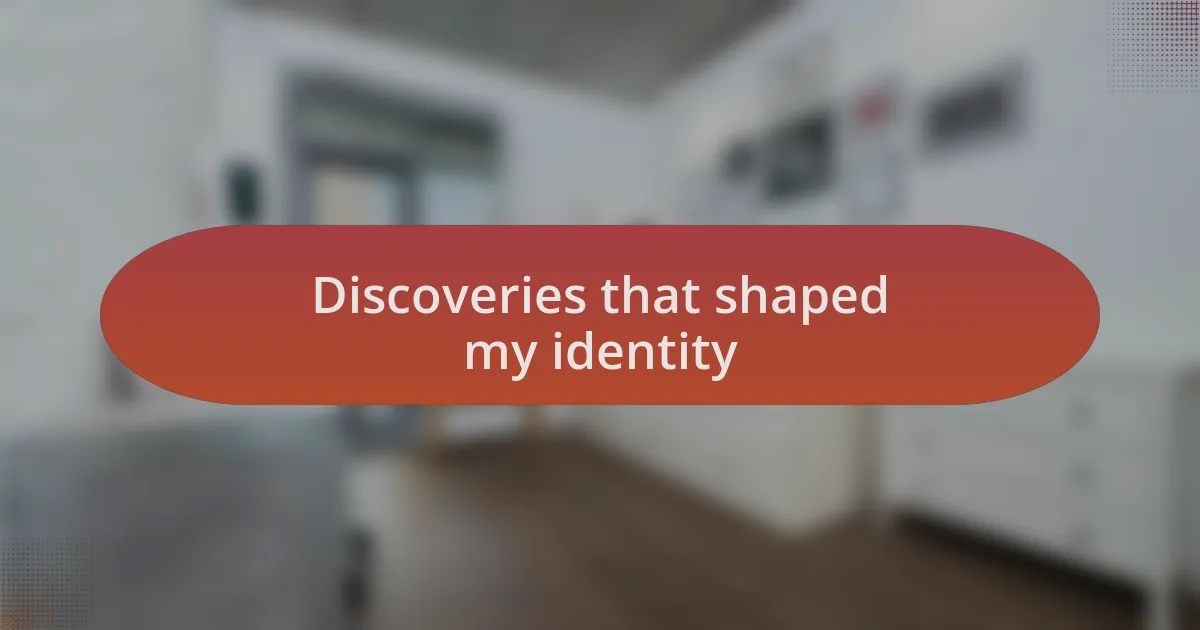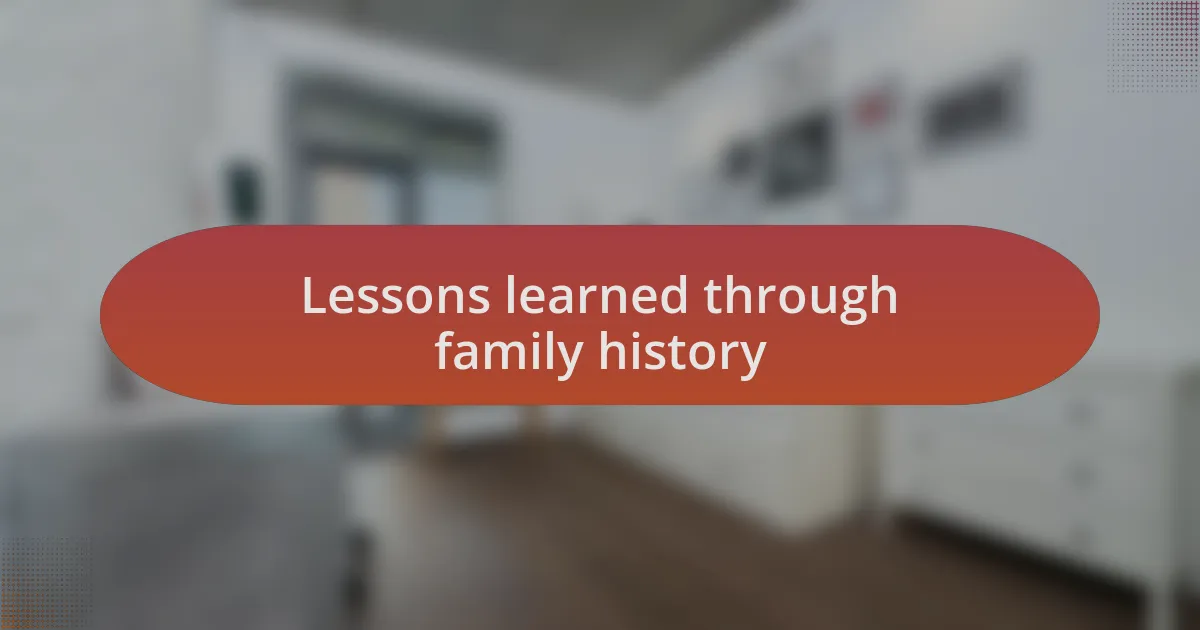Key takeaways:
- Genealogy connects individuals to their roots, enhances identity, and reveals transformative family histories.
- There are three main types of DNA tests: autosomal, mitochondrial, and Y-DNA, each providing different insights into ancestry.
- Discoveries about ancestry can instill a sense of pride, resilience, and a deeper connection to personal heritage.
- Exploring family history fosters gratitude, highlights resilience, and emphasizes the importance of community involvement and purpose.

Understanding genealogy and its importance
Genealogy is much more than just tracing your family tree; it’s about unearthing the stories and lives of those who came before us. Recently, I was surprised to discover that a great-grandparent I had never heard of had a profound influence on my family’s migration patterns. This revelation sparked my curiosity: how many other hidden narratives lie within our ancestry, waiting to be uncovered?
Understanding genealogy helps us connect with our roots and gives us a sense of identity. I remember feeling a rush of pride when I found out my ancestors were part of a significant historical event. It made me wonder, how does knowing where we come from shape who we are today?
Moreover, the emotional weight of genealogy can be transformative. I often reflect on how my family’s history of resilience has influenced my own life choices. Isn’t it fascinating to think that the trials and triumphs of our ancestors can still resonate within us? Engaging with our genealogy can deepen our understanding of ourselves, bridging past and present in meaningful ways.

Types of DNA tests available
When it comes to DNA testing, there are three primary types that offer different insights into our ancestry: autosomal, mitochondrial, and Y-DNA tests. I remember the moment I took an autosomal test and was astounded to see not only my ancestry composition but also connections to distant relatives I had never known. It felt like opening a door to a whole new world of possibilities and people.
Autosomal tests provide a broad overview of your genetic makeup by examining your DNA from both parents. It’s fascinating to think about how this test can identify relatives within the last five to six generations, which made me wonder—who else in my life could share pieces of that genetic puzzle? On the other hand, mitochondrial DNA tests trace the maternal line, allowing individuals to uncover their mother’s ancestral roots, which can evoke a profound sense of connection to the women in our family—something that resonated deeply with me when I discovered my own matrilineal lineage.
Lastly, Y-DNA tests are unique as they are exclusively for males, tracing the paternal line. Knowing that this test can reveal connections with historical figures and ancient lineages was exhilarating for me. I once joked with my brother that his results could show if we were descended from royalty, but honestly, it underscored a poignant link to our past and helped me appreciate the legacy I carry forward.

Discoveries that shaped my identity
Unraveling my ancestry opened my eyes to pieces of my identity I had never considered. When I discovered that I had roots in a small village in Italy, I was struck by an overwhelming sense of pride. Suddenly, the pasta recipes shared at family gatherings felt more profound, as if each dish carried whispers of my ancestors’ stories.
One of the most surprising revelations was finding out I had a distant cousin who had emigrated to America during the Great Migration. This connection not only highlighted the struggles and triumphs of my ancestors but also made me reflect on my own journey. How many challenges have I faced that echo the resilience they demonstrated? The mere thought of sharing a thread of determination with all those who came before me instilled a sense of strength in my identity.
As I pieced together these family narratives, I began to appreciate the complexities of my heritage. There were stories of hardship but also tales of joy that painted a richer picture of who I am today. Each discovery felt like adding a layer to my identity, reminding me that I am part of a much larger tapestry woven through time.

Lessons learned through family history
Exploring my family history taught me that our ancestors often faced challenges that seem insurmountable. When I stumbled upon a letter from my great-grandfather, describing his struggles as an immigrant, it hit home. How could someone endure so much yet still find a reason to smile? This discovery filled me with gratitude for the comforts I sometimes take for granted.
I also learned that family stories are not just tales; they are powerful reminders of resilience and hope. Discovering that my grandmother was a community leader during tough times encouraged me to step out of my comfort zone. If she could rally people together amidst adversity, shouldn’t I be more active in my community as well?
Finally, I realized that my ancestors’ diverse experiences shaped the values I hold dear today. As I learned about their hopes and dreams, I found reflections of my own aspirations. It made me wonder: what legacy do I want to create for future generations? Understanding my lineage instilled in me a deeper sense of purpose and a commitment to uphold the virtues of perseverance and love.